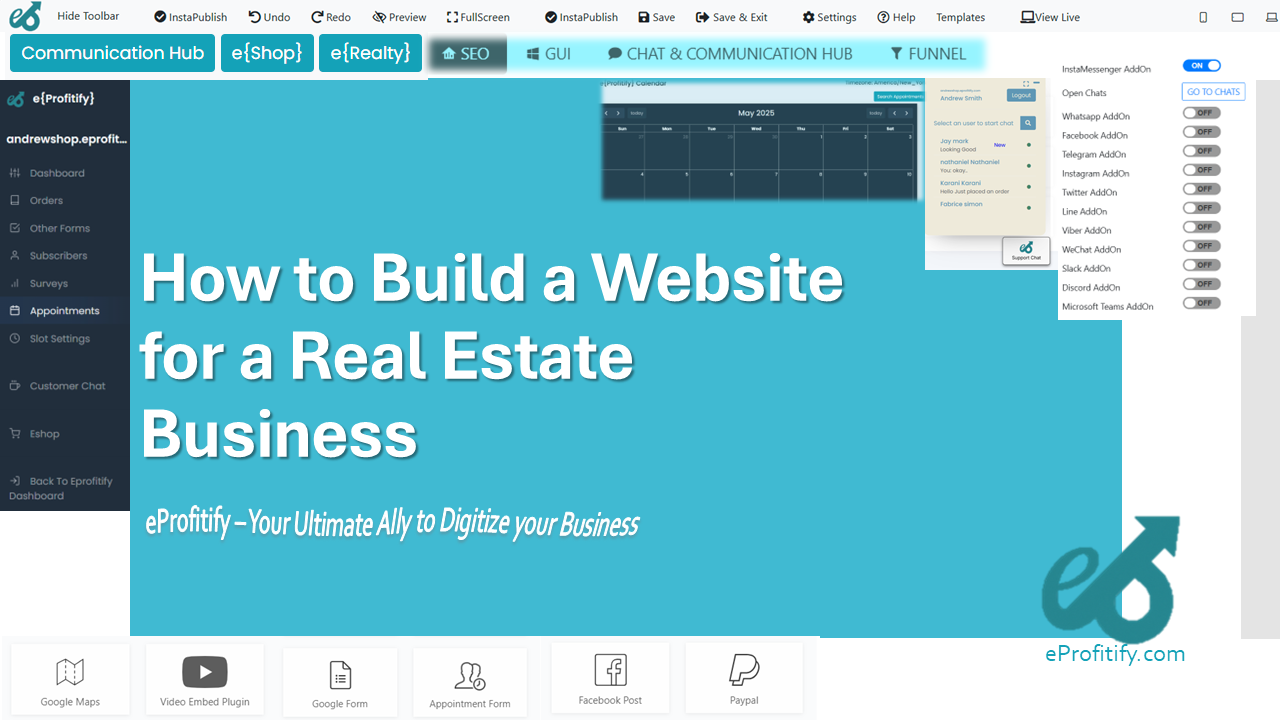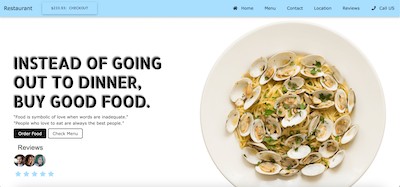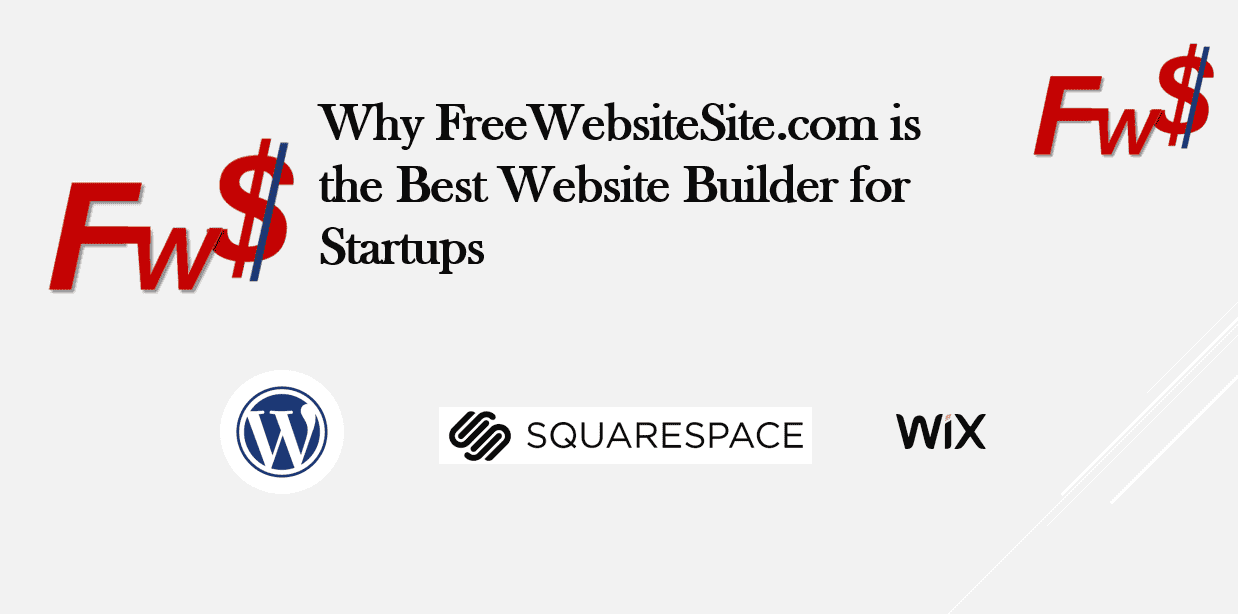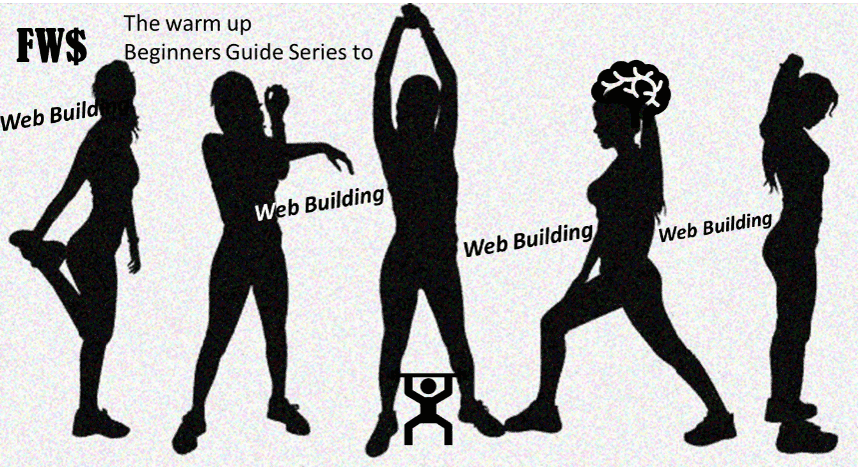How to Build a Website for a Real Estate Business

How to Build a Website for a Real Estate Business: A Strategic Guide with Eprofitify
In today’s digital-first world, a robust online presence is non-negotiable for real estate businesses. According to the National Association of Realtors (NAR), 97% of homebuyers use the internet during their home search, and 51% ultimately found their home online in 2023. A well-designed website acts as a 24/7 sales agent, generating leads, building credibility, and streamlining operations. This guide walks you through the steps to create a high-performing real estate website, supported by industry statistics, and highlights how Eprofitify—a leading website publishing and management platform—can elevate your digital strategy.
1. Define Goals & Audience
Start by identifying your target audience (e.g., first-time buyers, luxury clients, renters) and aligning your website goals with their needs. Common objectives include lead generation, brand awareness, and transaction facilitation. For instance, if targeting luxury clients, emphasize virtual tours and high-resolution galleries. According to Cisco, video content drives 56% more engagement, making it critical for premium listings.
2. Secure Domain & Hosting
Choose a domain name that’s memorable and reflects your brand (e.g., UrbanSkylineRealty.com). Opt for a .com extension, which 75% of users trust over alternatives. Pair this with reliable hosting to ensure fast load times; 40% of visitors abandon sites that take longer than 3 seconds to load. Platforms like Eprofitify offer integrated hosting solutions, simplifying setup.
3. Select the Right Platform
While WordPress and Wix are popular, Eprofitify stands out for real estate businesses by offering all-in-one tools tailored to industry needs. Unlike generic platforms requiring plugins for functionalities like CRM or scheduling, Eprofitify provides built-in features, reducing complexity and costs. This ensures seamless integration of critical tools from day one.
4. Prioritize Design & UX
A clean, responsive design is essential. Over 60% of property searches occur on mobile devices, so ensure your site is mobile-optimized. Use intuitive navigation and professional visuals. Eprofitify’s templates are designed for real estate, featuring property grids, search filters, and dynamic contact forms to enhance user experience (UX).
5. Create Engaging Content
High-quality content drives conversions. Include:
- Virtual tours and HD photos: Listings with videos receive 403% more inquiries (NAR).
- SEO-rich descriptions: Use keywords like “3-bedroom home in [City]” to improve search rankings.
- Blogs: Share market insights or home-buying tips to position your brand as an authority.
6. Integrate Essential Tools
Here’s where Eprofitify shines, offering industry-specific features:
- Instant Messaging: Enable live chats to engage visitors instantly—crucial, as 82% of customers expect immediate responses.
- Appointment Management: Automatically sync agent calendars to reduce missed appointments by up to 30%.
- CRM Integration: Track leads efficiently; businesses using CRMs see a 29% increase in sales (HubSpot).
- Ecommerce Tools: Facilitate document signing, deposit payments, or service purchases (e.g., home staging consultations).
7. Optimize for SEO
Local SEO is vital. Include location-based keywords (e.g., “Miami waterfront properties”) and claim your Google Business Profile. Eprofitify’s SEO tools automate meta tags, alt-text optimization, and schema markup, improving visibility. Additionally, 47% of clicks go to the top three local search results, underscoring SEO’s importance.
8. Test & Launch
Conduct thorough testing:
- Speed: Use Google PageSpeed Insights to ensure sub-3-second load times.
- Cross-device compatibility: Verify functionality on mobile, tablet, and desktop.
- Broken links: Tools like Screaming Frog identify issues pre-launch.
9. Maintain & Analyze
Post-launch, monitor performance using Google Analytics. Eprofitify’s dashboard aggregates metrics like traffic sources and conversion rates, enabling data-driven decisions. Regular updates—such as refreshing listings or blogging—keep your site relevant. Schedule quarterly UX audits to stay ahead of trends.
Why Choose Eprofitify?
Eprofitify consolidates every tool a real estate business needs into one platform:
- Instant Messaging: Convert visitors into leads with real-time chats.
- Appointment Scheduler: Sync with Google Calendar to streamline showings.
- CRM: Track client interactions and automate follow-ups.
- Ecommerce Integration: Sell services or process transactions securely.
- SEO & Analytics: Optimize content and track ROI effortlessly.
By reducing reliance on third-party plugins, Eprofitify cuts costs while enhancing security and efficiency—a key advantage for agencies scaling their operations.
Conclusion
Building a real estate website requires strategic planning, from selecting a user-friendly platform like Eprofitify to integrating tools that automate lead management and sales. With 73% of homeowners stating they’d work with an agent again if their experience was seamless (NAR), investing in a comprehensive website is no longer optional. By leveraging Eprofitify’s all-in-one toolkit, you position your business to capture more leads, close deals faster, and stand out in a competitive market. Start building your digital storefront today.





.png)


